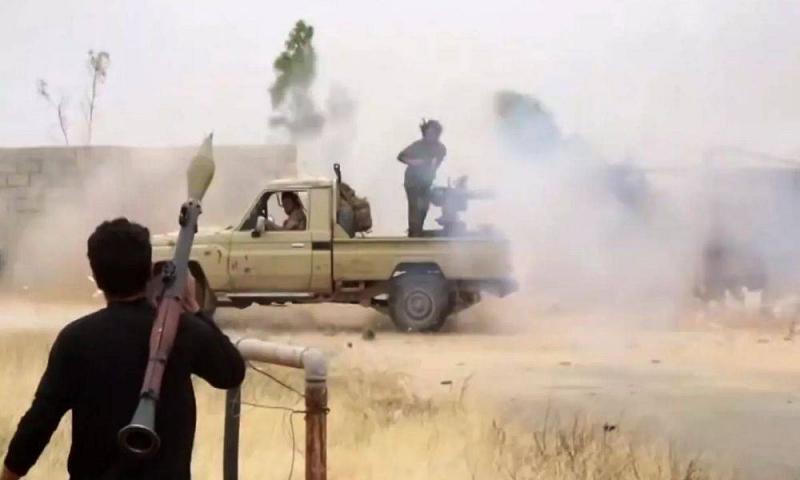Libya's capital, Tripoli, experienced violent clashes overnight between the two most powerful armed factions in several neighborhoods, continuing until Tuesday morning. This marks the worst violence the city has witnessed this year, raising concerns of a broader escalation of conflict. However, sources from both sides announced that one faction released the leader of the other, which bolstered hopes for a cessation of the bloody clashes.
The sources, one from Brigade 444 and the other from the Special Deterrence Force, stated that they released Mahmoud Hamza, the leader of Brigade 444, today, whose arrest the previous day had triggered fierce fighting in Tripoli. The clashes began after the Special Deterrence Force, which controls Tripoli's Mitiga Airport, detained Hamza while he was attempting to travel.
Both factions confirmed his release later in the day. Witnesses from Reuters in the city reported that the sound of explosions had not subsided in central Tripoli following Hamza's release. The number of casualties from the clashes is still unclear, but a medical unit associated with the Ministry of Defense reported transferring three bodies from the neighborhoods of Fernaj, Ain Zara, and Tariq al-Shok.
According to "Reuters," dark smoke rose over parts of the city early Tuesday morning, and heavy weaponry was heard in the streets. Residents and local media reported fighting in various areas of the capital. The Ministry of Health called on citizens to donate blood to assist the injured. Osama Ali, a spokesperson for the ambulance service, mentioned that 19 people were injured and 26 families were evacuated from conflict-affected areas.
It remains unclear how many were killed in the clashes, but the medical unit associated with the Ministry of Defense reported the retrieval of three bodies from the neighborhoods of Fernaj, Ain Zara, and Tariq al-Shok. A source in Brigade 444 indicated that the Special Deterrence Force, which controls Mitiga Airport, captured Brigade leader Mahmoud Hamza during his attempt to travel yesterday.
Sources from airlines and Mitiga Airport informed "Reuters" that authorities rerouted flights to and from the airport to the city of Misrata, located 180 kilometers east of Tripoli. Clashes erupted near the airport late Monday evening and continued into early Tuesday morning.
One resident of the Tariq al-Shok area in southern Tripoli reported hearing the sounds of fighting when he went to sleep around 1:30 a.m. local time and heard them more intensely when he awoke at 7:30 a.m. A Turkish Ministry of Defense official stated that "the situation has calmed down" in Tripoli, with no issues regarding the safety of Turkish forces.
The Libyan House of Representatives condemned "the fighting and kidnapping crimes occurring in Tripoli" and called for all parties to cease hostilities. The UN envoy to Libya urged an immediate end to the violence. The British embassy in Libya expressed concern over the clashes and called for de-escalation and the protection of civilians. Similarly, the French embassy noted its "serious concern" regarding the violent clashes and their impact on the population.
The ongoing fighting between Brigade 444 and the Special Deterrence Force, which supported the transitional Government of National Unity last year during brief battles, ended a relatively peaceful period lasting several months in Tripoli. Libya has endured little peace or security since the 2011 uprising, backed by NATO, which led to a split between fighting factions in the east and west in 2014.
An offensive launched by the eastern Libyan forces (the Libyan National Army) on western Tripoli in 2020 stopped, resulting in a ceasefire that ended most major fighting. Turkey, which supported the Tripoli government, has maintained a military presence in Libya. However, little progress has been made towards a permanent political solution to the conflict, and the armed factions on the ground, which have gained official status and funding, continue to wield significant influence.
Last year, factions supporting a rival government announced by the eastern parliament attempted to overthrow Prime Minister Abdul Hamid Dbeibah, resulting in violent clashes in Tripoli over the course of a day. Additionally, sporadic battles shook the city of Zawiya, west of the capital, that year.




